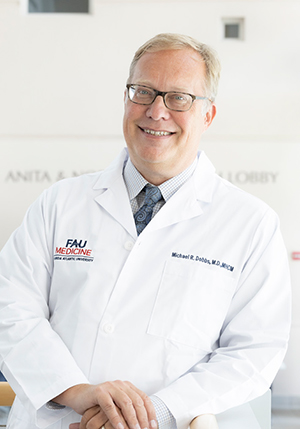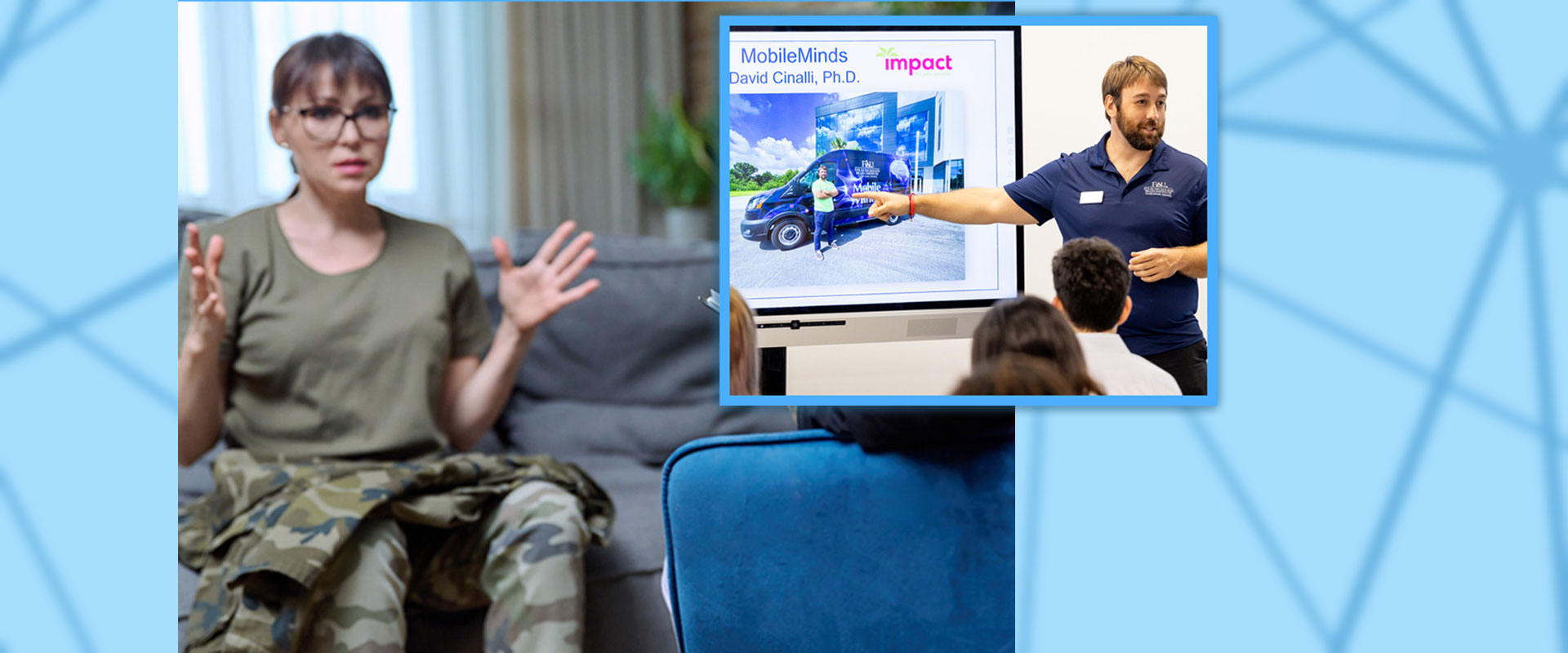A new partnership between Florida Atlantic and the Community Foundation of Broward extends mental healthfocused research and educational programs of the Stiles-Nicholson Brain Institute to Broward County residents, including veterans, children and adults.
Through a four-year, $400,000 grant from the Sharron and Joseph Ashby Hubert Fund, two research projects expand – one focused on stress in early life and one focused on post-traumatic stress disorder in veterans. In addition, the grant will fund the extension of the Brain Institute’s MobileMinds program, bringing science, technology, engineering and math education through brain science and health lessons on the road and into Broward County classrooms. It also will endow a symposium on advances in brain research and mental health for both Broward’s medical professionals and the public.
“Finding solutions and providing education are the most effective ways to save and improve the lives of those suffering with mental health and mood disorders, as well as reducing the negative impacts of mental health conditions on people, families and our community,” said Randy Blakely, Ph.D., executive director of the Florida Atlantic Stiles-Nicholson Brain Institute, the David J. S. Nicholson Distinguished Professor in Neuroscience, and a professor of biomedical science in the Charles E. Schmidt College of Medicine.
“Knowledge increases awareness of conditions and symptoms and helps the community recognize when they or someone they know may be at risk.”

Michael Dobbs, M.D., is the inaugural chair of the Department of Clinical Neuroscience in the Charles E. Schmidt College of Medicine. The new department is strategically important to the Stiles-Nicholson Brain Institute faculty and the the translational alignment of projects, and with a significant interest in mechanisms and treatments for neurodegenerative disease. “Dr. Dobbs’ hire couldn’t come at a better time to provide our more basic research programs related to mechanisms and treatment of disorders such as stroke, Alzheimer’s and Parkinson’s diseases, as well as neuropsychiatric illnesses, a strong footing in the real world,” said Randy Blakely, Ph.D., executive director of the Brain Institute.
